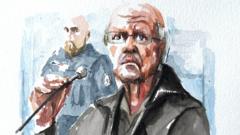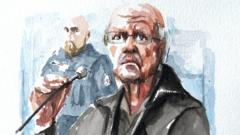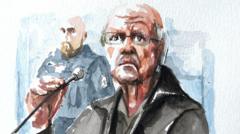As the Vatican prepares for a conclave to elect a new pope, deep divisions among cardinals underscore complex debates ranging from the role of women to accountability for sexual abuse, shaping the future of the Roman Catholic Church.
Navigating Divisions: The Future of the Roman Catholic Church

Navigating Divisions: The Future of the Roman Catholic Church
The ideological rifts among cardinals reflect broader societal tensions as the church prepares for a new pope.
The upcoming conclave in Vatican City, following the death of Pope Francis, reveals significant ideological divisions among the cardinals tasked with electing the next pontiff. This polarization mirrors the broader divides often seen among secular voters worldwide. While many conservative Church leaders have frequently opposed Pope Francis, who appealed to liberal audiences, the schisms within the Roman Catholic Church are not easily categorized along progressive-conservative lines.
Instead, discussions are steeped in complex issues that resonate deeply in contemporary society. Debates over the inclusion of women and L.G.B.T.Q. individuals, the potential for priests to marry, and the Church's response to sexual abuse scandals remain pivotal in this transitional phase. The upcoming election of a new pope thus centers not solely on hot-button issues but raises a fundamental question: Who should have a say in shaping the Church's future?
As the cardinals gather to deliberate, it is clear that the ideological fervor seen in the Vatican reflects a larger narrative about societal change and inclusion, indicating a significant moment of reflection for the Catholic Church as it stands at a crossroads.



















